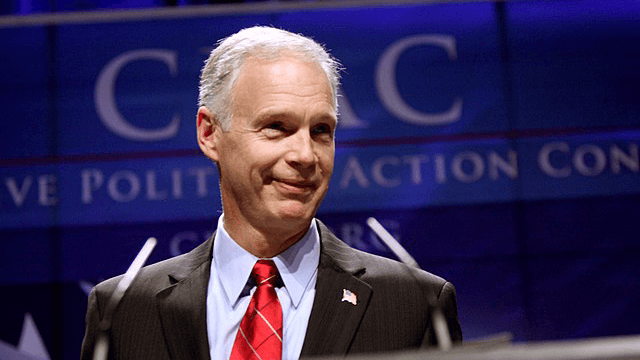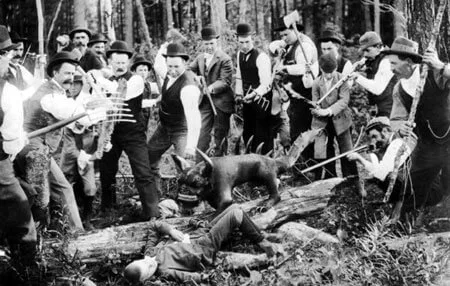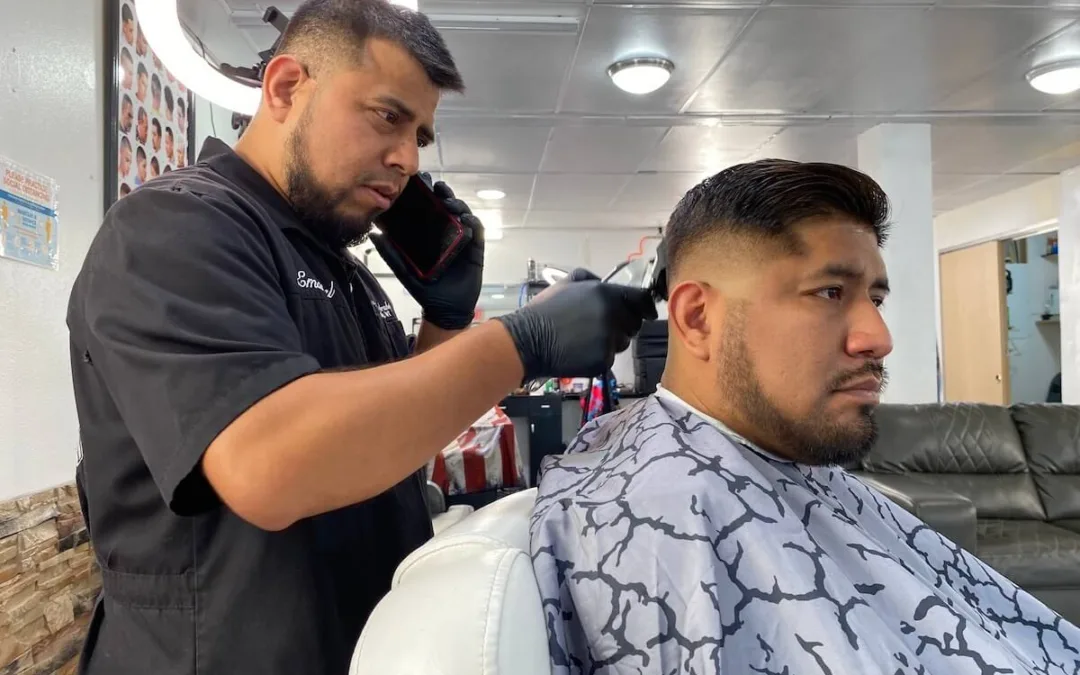
#image_title
#image_title
The Latino population is the fastest growing in the state, resulting in places like Arcadia — a tiny city in Trempealeau County — seeing a marked increase in Latino-owned businesses, like barbershops and restaurants.
Emanuel Montalvo swipes a hair trimmer along the back of a customer’s head, then repeats the motion more slowly, meticulously sliding the device upward, staring intently at his work.
A moment later he moves to his patron’s side and guides the trimmer in short motions, shaving small bits of hair from the man’s head. He stops, asks the man a quick question, then returns to his work, etching the hairline upward.
Another customer enters, and a different barber leads him to another chair further back. As jaunty Latino music plays over the shop’s sound system, the two barbers continue trimming hair on a recent afternoon in The Lounge Barbershop in downtown Arcadia, a Trempealeau County city of about 3,000. Once a rarity, Latino-owned businesses are growing and helping sustain an economy in Arcadia while other small and less diverse communities flounder.
“So far there has been demand for what we are doing here,” said Montalvo, who started the barbershop two years ago with a business partner. “There are more (Latinos) moving here, so we thought we could start this business and make it work.”
For years Arcadia’s Latino population mainly worked at Arcadia’s two largest employers, Ashley Furniture and the Pilgrim’s Pride chicken processing plant, and on dairy farms across west-central Wisconsin. But as the city’s Latino population continues to grow, a growing number of Latino-owned businesses have become a part of the city’s landscape.
Making a Home in Arcadia
Today The Lounge Barbershop is one of about 20 Latino-owned businesses in Arcadia, joining restaurants, grocery stores, clothing shops, an auto repair garage, food trucks and others.
“I remember when there was just the one Latino-owned grocery store,” Teresa Sanchez, who moved with her family to Arcadia from Georgia in 2007, said from a women’s clothing store her Latino mother owns. “That was it. Now we have four groceries, half a dozen restaurants, a bunch of food trucks and other businesses.”
That transformation is made possible as Arcadia’s Latino presence has become large enough to support those services. According to 2020 statistics, 46.7% of the city’s population is Latino. The Arcadia School District is about 75% Latino, and that figure is about 85% in the elementary school.
US Census Bureau figures show Arcadia is not alone in experiencing a surging rise in Latino residents. Currently at least 447,290 Latinos live in the Badger State, a figure experts say is almost certainly higher because of an undercount of that population during the most recent census count.
RELATED: From Farms to Factories to New Businesses, Latinos Have Made a Mark on Wisconsin’s Economy for More Than a Century
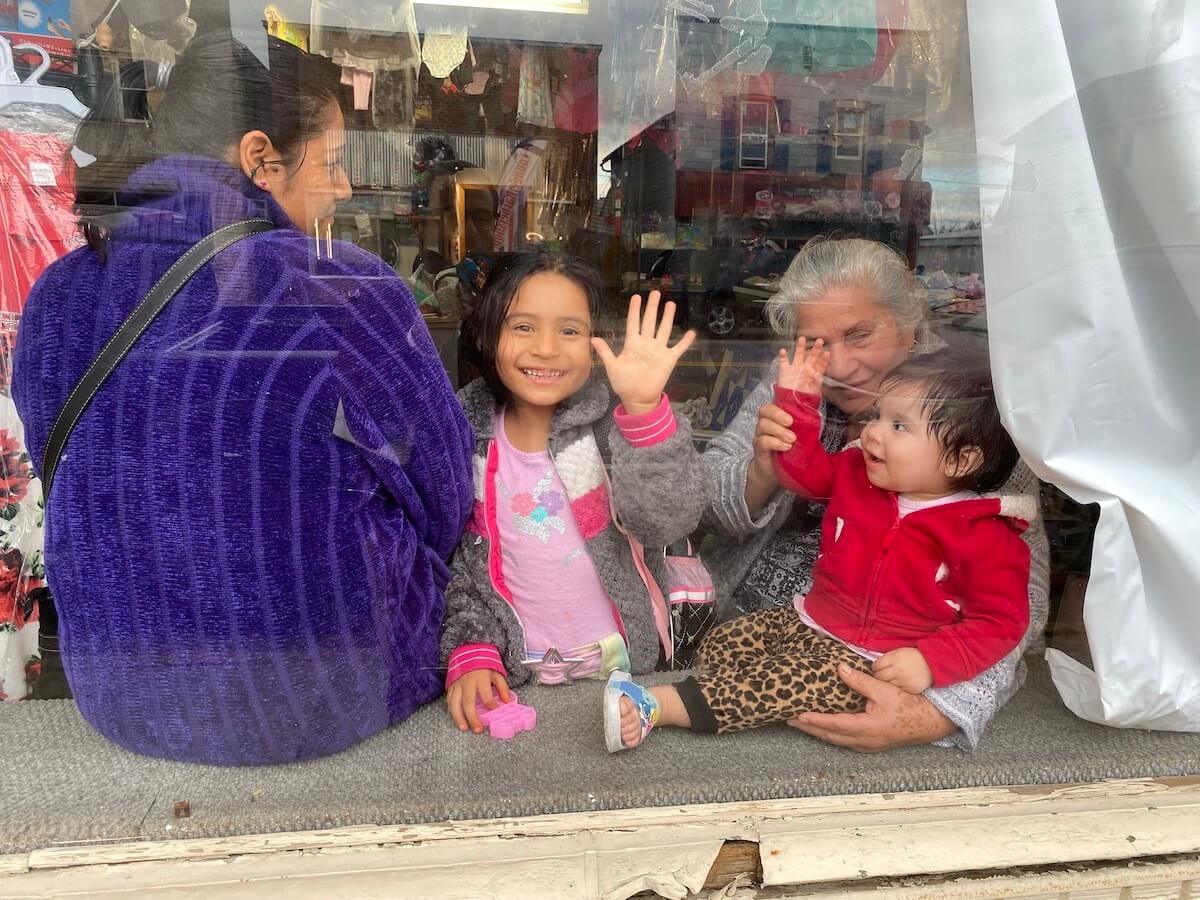
In fact, the Latino population is the fastest growing in the state, outpacing other ethnicities. In 2010 Latinos comprised 5.9% of Wisconsin residents; today that figure is 7.6%. Between 2010 and 2020, Wisconsin’s Latino numbers increased 33.1%, census figures show, while the Black population grew 4.8% and the white population declined 3.4%.
That population increase has prompted demand in many communities for more Latino food, clothing, and other products and services, leading to a shift toward more Latino-owned businesses in many regions, experts who study Wisconsin’s Latino population said. While many Latinos continue to work in such labor-intensive sectors as manufacturing, meatpacking, and canning plants and on dairy farms, a growing number are deciding to start ventures of their own.
Wausau Businesses
In central Wisconsin, much of the Latino population boom is happening because of the availability of jobs at meat processor Abbyland Foods in Abbotsford, and other Latinos are working at dairy farms there. However, as more Latinos settle the region, a growing number are starting their own business ventures, responding to needs for grocery stores, restaurants, and other services, said Tony Gonzalez, Hispanic community coordinator for the Hmong and Hispanic Community Network (H2N) in Wausau.
When he moved to Wausau in 2012, Gonzalez recalls two Mexican restaurants in the city. Today there are eight or nine in the area, he said, as well as numerous other businesses owned by Latinos.
“As more Hispanics move here, you are seeing this transition to more of them starting their own businesses,” he said of the region that is home to about 4,000 Latinos. “I think it’s something we’re going to see continue.”
That trend has been occurring for a longer time in the Milwaukee area and other parts of southeastern Wisconsin where Latinos first settled in the state, said Armando Ibarra, a UW-Madison professor who studies Wisconsin demographics. During the past 100 years or so, as Latinos have spread to other regions to fill manufacturing and farming jobs, their growing numbers have created demand for other services, prompting the growth of Latino-owned businesses, he said.
Given the relatively high birth rate of Latinos compared to other ethnic groups and their continued spread throughout Wisconsin, that trend is likely to continue to grow in the future, he said.
“We have a demographic shift that is changing our profile in our state, the same shift that is happening across the US,” Ibarra said. “When you look at how many young Latinos there are in Wisconsin, you get a sense of what this state is going to look like more and more in the future.”
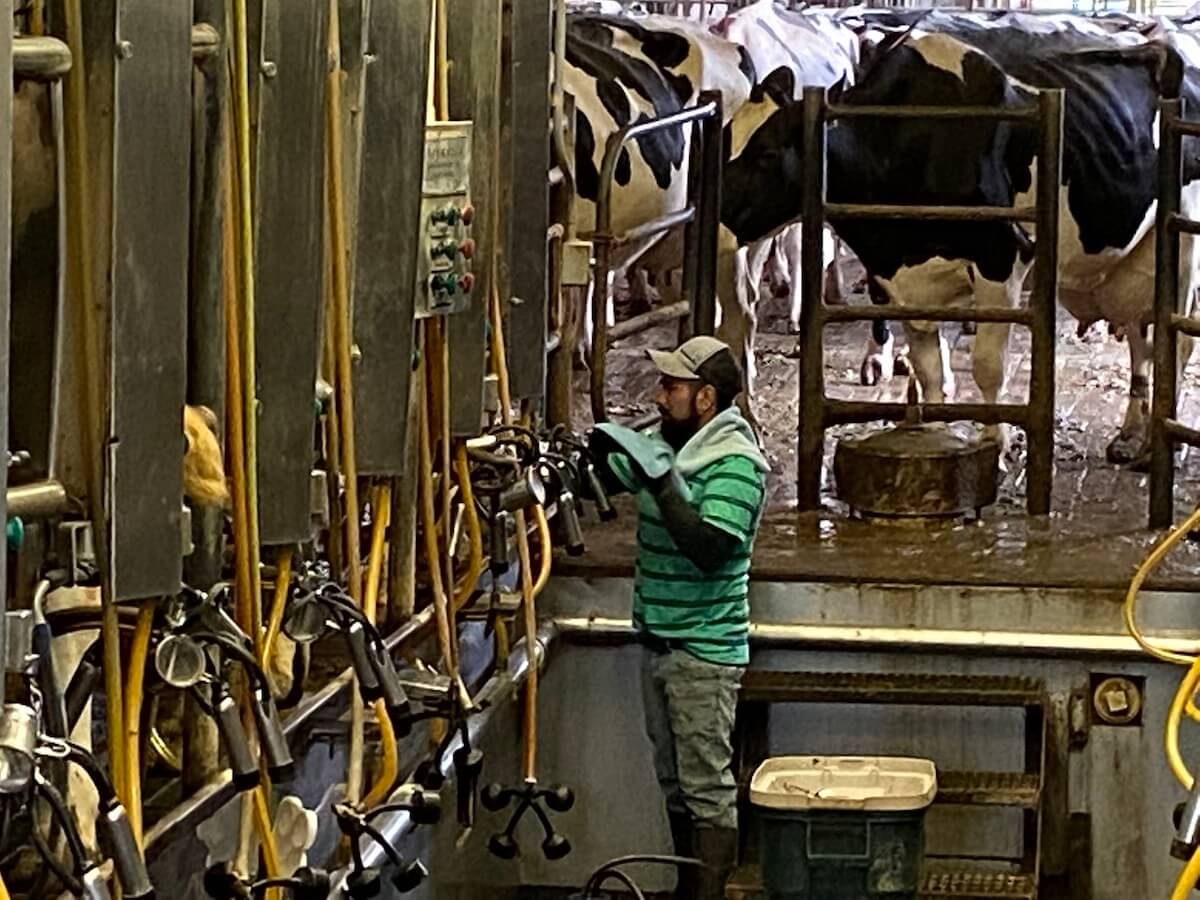
A Critical Workforce
Buffalo County dairy farmer John Rosenow hired his first Mexican farm worker in 1998, when he had difficulty finding enough employees to milk his cows and do the other labor required to keep his farm operating. Today, half of the 20 employees at his farm are Latinos. Rosenow said his farm and many others couldn’t continue without them.
“There are no other options for farmers. They would have to cease operations,” he said
Similarly, Rosenow said, Ashley, Pilgrim’s Pride, and other businesses would struggle to find enough workers without the region’s rising Latino numbers. Without the influx of Latino students, Arcadia School District enrollment would be only a quarter of its current figure. At a time when many small cities across Wisconsin are struggling to attract and retain people, Arcadia is growing and adding to its community.
“Downtown Arcadia would be a ghost town without the 20 or so businesses that cater to immigrants,” Rosenow said of the area’s newer residents. “This community wouldn’t be what it is without Latinos.”
As more Latinos settle in Arcadia and across Wisconsin, Montalvo said more businesses like his are likely to spring up to meet the demands of the growing population. As he finished trimming a customer’s hair his phone rang as another patron sought to make an appointment.
“We are definitely staying busy,” he said. “I think there will be enough customers for all of us.”
Politics

‘Radical’ Republican proposals threaten bipartisan farm bill, USDA Secretary says
In an appearance before the North American Agricultural Journalists last week, United States Department of Agriculture (USDA) Secretary Tom Vilsack...

New Biden rule protects privacy of women seeking abortions
Under the new rules, state officials and law enforcement cannot obtain medical records related to lawful reproductive health care with the goal of...
Local News

Readers Poll: Top Bowling Alleys in Wisconsin
Looking for the best bowling in Wisconsin? Look no further! Our readers have spoken in our recent poll, and we have the inside scoop on the top...

8 Wisconsin restaurants Top Chef judges are raving about
Top Chef’s 21st season is all about Wisconsin, and on-screen, it’s already apparent that the judges feel right at home here. But, while filming in...


